
Bertrand Arthur William Russell, 3rd Earl Russell, was a British mathematician, logician, philosopher, and public intellectual. He had influence on mathematics, logic, set theory, and various areas of analytic philosophy.

Emma Goldman was a Lithuanian-born anarchist revolutionary, political activist, and writer. She played a pivotal role in the development of anarchist political philosophy in North America and Europe in the first half of the 20th century.

Charles Augustus Lindbergh was an American aviator and military officer. On May 20–21, 1927, he made the first nonstop flight from New York City to Paris, a distance of 3,600 miles (5,800 km), flying alone for 33.5 hours. His aircraft, the Spirit of St. Louis, was designed and built to compete for the $25,000 Orteig Prize for the first flight between the two cities. Although not the first transatlantic flight, it was the longest at the time by nearly 2,000 miles (3,200 km) and the first solo transatlantic flight. It became known as one of the most consequential flights in history and ushered in a new era of air transportation between parts of the globe.

Samuel Phillips Huntington was an American political scientist, adviser, and academic. He spent more than half a century at Harvard University, where he was director of Harvard's Center for International Affairs and the Albert J. Weatherhead III University Professor.
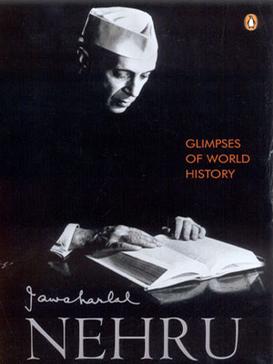
Glimpses of World History is a book published by Jawaharlal Nehru in 1934. The book is subtitled Being further letters to his daughter, written in prison, and containing a rambling account of history for young people.
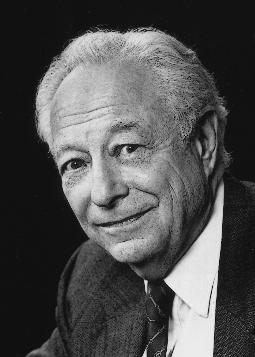
Irving William Kristol was an American journalist and writer. As a founder, editor, and contributor to various magazines, he played an influential role in the intellectual and political culture of the latter half of the twentieth century. He was dubbed the "godfather of neoconservatism". After his death, he was described by The Daily Telegraph as being "perhaps the most consequential public intellectual of the latter half of the century". He is the father of political writer Bill Kristol.

William James Durant was an American historian and philosopher, best known for his 11-volume work, The Story of Civilization, which contains and details the history of Eastern and Western civilizations. It was written in collaboration with his wife, Ariel Durant, and published between 1935 and 1975. He was earlier noted for The Story of Philosophy (1926), described as "a groundbreaking work that helped to popularize philosophy".
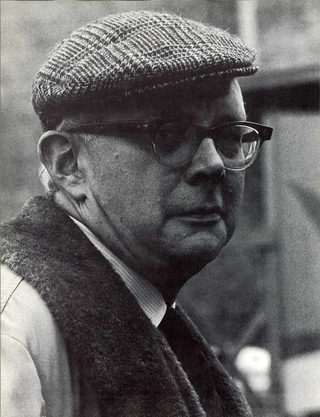
Irving Howe was an American literary and social critic and a prominent figure of the Democratic Socialists of America.
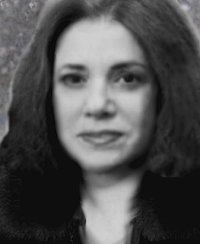
Barbara Grizzuti Harrison was an American journalist, essayist and memoirist. She is best known for her autobiographical work, particularly her account of growing up as a Jehovah's Witness, and for her travel writing.
Russell Wayne Baker was an American journalist, narrator, writer of Pulitzer Prize-winning satirical commentary and self-critical prose, and author of Pulitzer Prize-winning autobiography Growing Up (1983). He was a columnist for The New York Times from 1962 to 1998, and hosted the PBS show Masterpiece Theatre from 1993 to 2004. The Forbes Media Guide Five Hundred, 1994 stated: "Baker, thanks to his singular gift of treating serious, even tragic events and trends with gentle humor, has become an American institution."
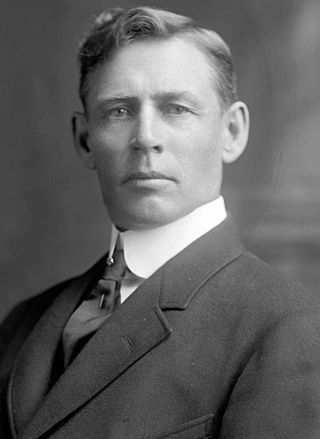
Charles August Lindbergh was a United States Congressman from Minnesota's 6th congressional district from 1907 to 1917. He opposed American entry into World War I as well as the 1913 Federal Reserve Act. Lindbergh is best known as the father of famed aviator Charles Lindbergh.

When Genius Failed: The Rise and Fall of Long-Term Capital Management is a book by Roger Lowenstein published by Random House on October 9, 2000. The book tells an unauthorized account of the creation, early success, abrupt collapse, and rushed bailout of Long-Term Capital Management (LTCM). LTCM was a tightly held American hedge fund founded in 1993 which commanded more than $100 billion in assets at its height, then collapsed abruptly in August and September 1998. Prompted by concerns about LTCM's thousands of derivative contracts, in order to avoid a panic by banks and investors worldwide, the Federal Reserve Bank of New York stepped in to organize a bailout with the various major banks at risk.

Ved Parkash Mehta was an Indian-born writer who lived and worked mainly in the United States. Blind from an early age, Mehta is best known for an autobiography published in installments from 1972 to 2004. He wrote for The New Yorker for many years.
Traditionalist conservatism, often known as classical conservatism, is a political and social philosophy that emphasizes the importance of transcendent moral principles, manifested through certain posited natural laws to which it is claimed society should adhere. It is one of many different forms of conservatism. Traditionalist conservatism, as known today, is based on Edmund Burke's political views as well as the views of Joseph de Maistre. Traditionalists value social ties and the preservation of ancestral institutions above what they perceive as excessive individualism. One of the first uses of the phrase "conservatism" began around 1818 with a monarchist newspaper named "Le Conservateur", written by Francois Rene de Chateaubriand with the help of Louis de Bonald.
Harvey Aronson is an American journalist and journalism teacher, and a former Newsday editor who also wrote or co-wrote several books. He was part of a group of Newsday reporters involved in writing the bestselling hoax novel Naked Came the Stranger, initially credited to fictional author Penelope Ashe, and published as a parody of commercialized book publishing in general and of novels in the genre of Jacqueline Susann's Valley of the Dolls in particular. Aronson co-edited the project with his colleague, Mike McGrady, who had conceived the idea, and Aronson also wrote a chapter of the book about a character described in a later news article as "Melvin Corby, a meek real-estate lawyer, unsatisfied in his marriage yet incapable of adultery, the only character in the book thus afflicted." In a Life magazine article written after the ruse was revealed, Aronson commented that he thought the book had ended up being more comedic than pornographic, and he opined that Susann "writes about sex as if she were a virgin".
William Eli Burrows was an American author and journalism professor. Born in Harrisburg, Pennsylvania, he was educated at Columbia University and became assistant professor of journalism in 1974.
William Jovanovich was an American publisher, author, and businessman of Montenegrin descent. He served as the director of the publishing firm Harcourt, Brace & World from 1954 to 1991, renamed Harcourt, Brace, Jovanovich in his honor in 1970. He also owned SeaWorld marine parks, and wrote both fiction and non-fiction.
Heroes of History: A Brief History of Civilization from Ancient Times to the Dawn of the Modern Age is a book by Will Durant, published in 2001 and was written as a summary of Will and Ariel Durant's The Story of Civilization. It describes important personalities and events in History. These 'Heroes' include Laozi, Muhammad, Kung fu Tze, The Buddha, Mohandas K. Gandhi, Akhenaton, Jewish prophets, Solon, Pericles, Euripides, Socrates, Julius Caesar, Augustus, The Five Good Emperors, Lorenzo de Medici, Leonardo da Vinci, Martin Luther, William Shakespeare and Sir Francis Bacon, among others. Originally planned as a series of audio lectures, Heroes of History was supposed to have twenty-three chapters, but Durant completed only twenty-one before his death in 1981.
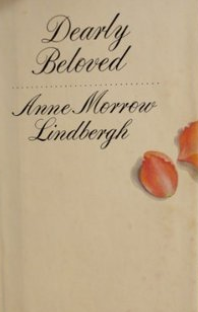
Dearly Beloved is a 1962 novel by the American writer Anne Morrow Lindbergh. It takes place during a New England wedding ceremony and consists of the reflections of the wedding guests.

Goliath: Life and Loathing in Greater Israel is a 2013 book by Max Blumenthal. The book examines what Blumenthal characterizes as Israel's aggressive shift to the far-right, and its crackdown on local activism. In the preface, Blumenthal says that "Americans' tax dollars and political support are crucial in sustaining the present state of affairs" in Israel.














